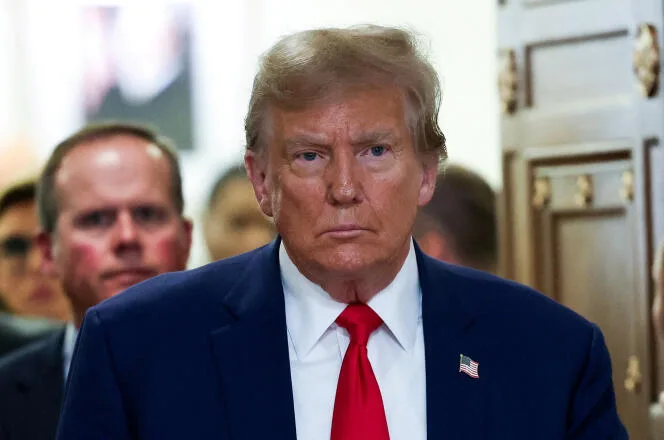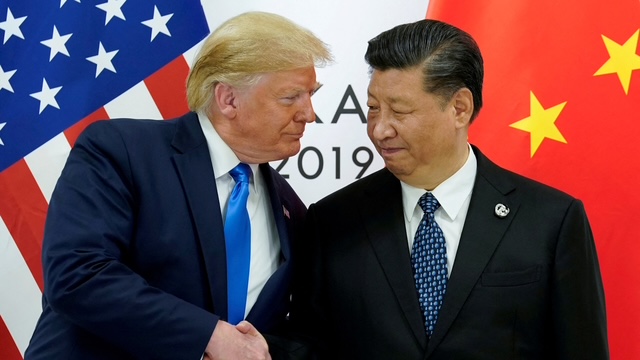The Way America’s Rivalry With China Is Discussed Needs To Change
Over the last few years, we have constantly heard about America’s Great Power rivalry with China. For good reason; the US and China are the two most powerful and influential nations in the world. Their relationship and rivalry affects the entire world. But the way that people often describe this rivalry is simplistic, reductive and repetitive. Such a fundamentally important, nuanced relationship must be described in the serious, nuanced way that its nature deserves.
I often get the sense that when people speak of the US-China rivalry, they believe that the weight of the topic alone negates the need for thoughtful analysis. That the mere phrase “US-China rivalry” means you have something important and serious to say.
The problem is that this means that thoughtful analysis of the rivalry is in short supply and we repeatedly hear the same points about China’s rise and America trying to keep its influence echoed. It seems like those talking about the rivalry are just waiting for the next development in the rivalry, a clash. There isn’t enough interest in going into the details of what is going on. Rarely do we see much analysis beyond the generalities about the overall rivalry.
In many ways, the manner in which the US-China rivalry is described is understandable. For as much as we anticipate what is to come, nothing that severe has happened yet so far. It does feel like we are at the calm before the storm. At the precipice of something that will define the world in the 21st century. And we aren’t positive about the next significant thing that will happen. Consequently, a generalist, simplistic description of America’s relationship with China is the default.
But, while understandable, this way of viewing and describing the US-China rivalry is counterproductive. The reductive way that we describe both the rivalry with China and China itself, atrophies our ability to understand China, react to their actions, and make the case to the undecideds of the world to support us, not them.
China is not some nameless enemy, or a stand in for evil. This isn’t to say that they and the worldview they haven shouldn’t be vigorously opposed; they should. It is in fact to say that to properly engage with them, we cannot reduce them to a caricature. Nor can we view this rivalry as simply US interests against Chinese interests, separated from the affixed world systems that come with either a US or Chinese led world.
We also cannot describe US v China in such a black and white manner that it ignores nuance. But this is more for our case to the world. When we describe an enemy in such a manner that other nations can see is not entirely accurate, it provides an unnecessary opening. An opening that allows our enemy to say “this description of us is simply American propaganda.” It allows them and their allies to make as if we are no better and no less propagandistic than they are.
In reality, we are better than they are. They are authoritarian nations that despise liberal democracy. They systematically suppress opposing views and oppress “undesirable” people. The post World War 2 US-led world order has led to more peace and prosperity than any period in human history, even accounting for all the wars and suffering that have happened during this time. It has been the only time period in which self determination, democracy, rights of minority groups, and free speech have been the default.
The US is not morally equal with China. But that doesn’t mean that the US doesn’t make mistakes, doesn’t do things just to push our interests, or that every single thing China does is evil. Describing things as if it does allows China to obfuscate the real difference between the them and us by saying we propagandize just as much as they do.
Another problem with the reductive and repetitive way that the US-China rivalry is described is that it makes us forget how profoundly different the world would be if China does surpass the US. As mentioned before, the US led world after WW2 has been the only time period in which liberal democracy and rights for all people were seen as the norm. Too many discuss the US-China rivalry as if it’s simply the latest of great power rivals. It is that, but it is much more. The very standards we take for granted only exist because the US, not China, leads.
The more that China’s influence increases, the more that authoritarianism. will rise. The whole purpose of those opposing the US led West is the opposition to the essential values of the US and the West. The values of democracy, free trade, open societies. They seem like cliches. But they only seem like cliches because they are the norm. They are only the norm because the US leads the world.
The biggest point of argument against the US and West is that of supposed hypocrisy. The US says we protect democracy and the rights of self determination of all. Yet the US has been involved in countless interventions around the world that diametrically oppose these values.
But we do not live in an ideal world. We live in a world that necessitates making alliances with bad countries to achieve a larger goal. America needed to ally with the Soviet Union to defeat Nazi Germany. Now America needs to ally with Saudi Arabia for oil and for a foothold in the Middle East. We must do this to maintain the US led world order that is objectively better than any other world order.
We live in a complex and messy world. A world in which, to further your interests, you cannot always be morally good everywhere. Nations like Russia and China, as well some people in the West, bring up these actions of the US, in which we overthrew a democratically elected government, or did something that wasn’t moral, as if that shows we are no different from any other great power.
The US is not a perfect country that does no wrong. It is not a country that is immune from ever doing something in our interest. What the US is, is a country that is oriented towards freedom, self determination, the rights of all, and improving our society. We are made up of imperfect people, leaders included. But our system allows openness, freedom, and self correction.
That means that in complex and nuanced situations, we sometimes get it wrong. We sometimes are hypocritical. Sometime we do things that go against our stated values. We even have propaganda. But this is different in kind from societies that are oriented towards authoritarianism, that do not allow for criticism or the self determination of their people.
No nation in history has ever been as powerful, while also using that power for the advancement of human rights and peace for all, as the US. This is why we must change the way we describe the US-China rivalry. We cannot caricature China, because we need to have a real understanding of what they want and how they act.
We cannot fall into the same reductive and repetitive descriptions of the rivalry, because we must understand how serious it would be if China actually did surpass the US. It wouldn’t just be one nation winning a Great Power competition over another nation. The way the world system works would change. The default of individual rights, free trade and free speech would not be the default anymore.
But we cannot give in to the temptation of describing the US-China rivalry in completely black and white terms. We cannot give China the opportunity to point out our lack of nuance and use that as a way to distract from the fact that we are morally better.
Despite our flaws and mistakes, the US has a record, a system of government, and a citizenry that, when held up against any competitor for world influence, comes out much better. We can learn from China. We can better understand their point of views and can even work with them. But we must understand how important it is to look at our rivalry with China in a proper, nuanced way.
This rivalry is not just a thing to talk about. It’s not just a geopolitical dance to watch. It is a very real thing, the result of which will have a fundamental effect on the priorities of the world. Good things that we have that we take for granted are not guaranteed forever. The way we discuss the US-China rivalry must reflect this reality.


